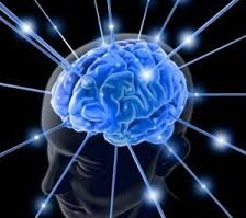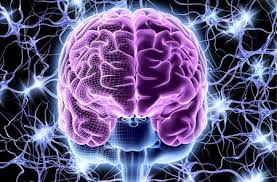Articles:
As with so many things in the search for knowledge, a good place to start is with Wikipedia. There's lot of information here, and to multiply things further, there are a lot of additional links to wiki articles on associated subjects near the bottom.
https://en.wikipedia.org/wiki/Consciousness
This will save one click for you from the above. It addresses the central problem in studying consciousness, and indeed, one of the central problems of philosophy.
https://en.wikipedia.org/wiki/Mind%E2%80%93body_problem
This has been rephrased in modern terms as a popular meme by David Chalmers known as "The Hard Problem":
https://en.wikipedia.org/wiki/Hard_problem_of_consciousness
Here's Chalmers himself:
http://consc.net/papers/facing.html
Here's a competing meme, addressing the same issue:
https://en.wikipedia.org/wiki/What_Is_it_Like_to_Be_a_Bat%3F
Another scholarly view:
http://www.iep.utm.edu/consciou/
and:
http://www.iep.utm.edu/hard-con/
What philosophers talk about all day:
https://plato.stanford.edu/entries/dualism/
Why Can't the World's Greatest Minds Solve the Mystery of Consciousness? Well, why can't they?
And the more intractable the problem, the more the Great Minds bicker. Just like us little minds.
https://www.theguardian.com/science/2015/jan/21/-sp-why-cant-worlds-greatest-minds-solve-mystery-consciousness
Where the Great Minds bicker:
http://www.nytimes.com/2016/05/17/science/science-of-consciousness-conference-raw-data.html?_r=0
The great thing about studying consciousness is: nobody knows what it's about. Thus, all theories are on the table. The people who write the skeptical rebuttals on Wikipedia to all things "new-agey" would like to think that consciousness is just a byproduct of chemical processes in the brain, a view known as reductionism, which pervades much of science. It is also considered a "materialist monism" position. Descartes thought that mind and body were two separate things, which became known as dualism. Material monists think that only one thing exists, and that one thing is the material world. This obviously also has implications for everything from science to spirituality:
https://en.wikipedia.org/wiki/Materialism
Ah, but what if only one thing existed (monism), but it was not material? THAT'S some sand in the crankshaft! Or what if it were neither material or ephemeral (mental)? Now you have Neutral Monism, a very intriguing position:
https://en.wikipedia.org/wiki/Neutral_monism
But anything goes. Many readers of this site may likely be attracted to this next position:
https://www.scientificamerican.com/article/is-consciousness-universal/
In the above article, he mentions another interesting take on things, Integrated Information Theory. This is unique in that it is the first theory which tries to quantify consciousness, by putting a numerical variable on it. (Cats are more conscious than rocks, humans are more conscious than cats, etc.) The variable is known as Phi.
https://en.wikipedia.org/wiki/Integrated_information_theory
And:
https://blogs.scientificamerican.com/cross-check/can-integrated-information-theory-explain-consciousness/
Man, Scientific American really seems to like both panpsychism and ITT:
https://www.scientificamerican.com/article/a-theory-of-consciousness/
Scholarly panpsychism:
https://plato.stanford.edu/entries/panpsychism/
More of the same, although it seems limiting to present panpsychism and emergentism as mutually exclusive. Perhaps consciousness could be an enduring part of the universe, one that humans in their evolutionary development slowly came in tune with:
http://www.iep.utm.edu/panpsych/
"This (following) article will help you understand how consciousness works in the brain." Well, maybe. Or it may just make you more confused. Nonetheless, it's a down-and-dirty guide to a lot of other consciousness theories. If nothing else, it accents just how confusing the field is, and just how little we actually know and understand.
http://detechter.com/this-article-will-help-you-understand-how-consciousness-works-in-the-brain/
If you've come this far, that's a lot of brain-twisting. Here's just some more random things that have to do with consciousness to fill out the section:
More panpsychism, Integrated Information Theory, with a side of Buddhism this time:
http://www.lionsroar.com/christof-koch-unites-buddhist-neuroscience-universal-nature-mind/
Here's some similar stuff. Einstein was not traditionally religious, but speculated that Buddhism might be a good candidate for the "religion of the future." These guys make a good case for that, too. There's probably no other religion that is so compatible with science, although Buddhism really isn't a religion in the traditional sense:
http://www.lionsroar.com/two-sciences-of-mind/
If archetypes exist, then they certainly interface with consciousness. Astrology, as well as most other things that bring "meaning" to life (as apart from simple logical analysis), is built on archetypes. Here's the guy who started the modern thinking on them. He does owe a bit of a debt to Plato, however.
https://en.wikipedia.org/wiki/Jungian_archetypes
Consciousness as a science is just getting started. Who knows where it will go? Here's an interesting experiment that hints at some possibilities:
http://www.seeker.com/two-rats-communicate-brain-to-brain-1767260658.html
What is intelligence? Our society is so dominated by yang, analytical views of intelligence that other sorts are given short shrift. Here's an interesting idea: maybe there are different kinds of intelligence. Here, even the mystic is given their own form of "intelligence," as well as the athlete. Perhaps we need not be so rigid? They all take lots of brain cells working together.
http://www.institute4learning.com/multiple_intelligences.php
OK, reductionistas: consciousness as a result or function of molecular reactions can kind of make sense if you want it to make sense. But to assume that this is the only possibly answer is false.
http://www.forbes.com/sites/quora/2014/04/16/what-are-some-concise-ways-to-convince-people-that-consciousness-is-not-an-emergent-property/#21fb33507762
How reliable is our consciousness, our thoughts, our reasoning, at determining truth? The editor of Astronomy Magazine posts what he considers a hierarchy of truth-finding methods below. Unsurprisingly, he finds scientific empiricism to be at the top of the pyramid. This is not to say anything against scientific empiricism (which has produced much amazing knowledge), but it might be pointed out that a) a scientist may (as well as anyone else) have interpersonal problems in their life with spouse, kids, friends, or co-workers. This brings home immediately that science is only one possible subset of reality, and that logic isn't everything. Also, b), Einstein himself put great stock in intuition, listed here as the least desirable. And great insights have occurred from dreams and other such "mystical enlightenments." The world is a complicated place. (See the article on types of intelligence above.)
http://www.huffingtonpost.com/david-j-eicher/do-you-see-the-universe-clearly_b_5621531.html
David Chalmers has thought about consciousness as much as anyone alive. That doesn't mean he actually has the answer: the jury's still out on all of this. However, it certainly bears listening to some of his ideas at least. Here's an online partial version of his seminal book The Conscious Mind. On page 118, for example, he addresses consciousness in relation to the "new physics," and on 121 he touches on reductionism.
https://books.google.com/books?id=0fZZQHOfdAAC&pg=PR15&lpg=PR15&dq=the+conscious+mind+by+david+chalmers+chapter+10&source=bl&ots=qlDZbbFOVI&sig=y6tyVaMNmqKlMX7bs1KScjPCFSI&hl=en&sa=X&ved=0ahUKEwjHvqDBy7PRAhURxmMKHc28BeYQ6AEIPjAF#v=onepage&q=the%20conscious%20mind%20by%20david%20chalmers%20chapter%2010&f=false
This is some heady stuff. Let's get even further out there. There is disdain and controversy surrounding physicists who believe that consciousness somehow interacts with the quantum world. Coming from the opposite direction, there are physicists who in turn think that it is the quantum world itself that produces consciousness:
https://en.wikipedia.org/wiki/Quantum_mind
Most of the quantum/consciousness stuff appears in other sections, but since this is such an important question, and since some people may skip the physics section, here's a taste. The question itself is pretty straightforward (whether consciousness my interact with the physical world). Too bad there's no easy answer. In fact, the author here at the end basically throws up his hands and ends with "In short, the whole conversation related to quantum consciousness is quite complex." Indeed.
http://physics.about.com/od/QuantumConsciousness/f/IsConsciousnessQuantum.htm
Wiki's wonderful list of cognitive biases. Under the impression that you think clearly? (cue chuckling sound). I like the IKEA effect:
https://en.wikipedia.org/wiki/List_of_cognitive_biases
Just how fast is the brain? Pretty fast, but...
http://blogs.discovermagazine.com/neuroskeptic/2015/01/08/subliminal-how-fast-is-brain/#.WHLDClwhHrM
How many neurons are there in the human brain, all storing useless memories, processing Facebook pages, and trying to figure out why people won't do the things we want them to do?
https://www.theguardian.com/science/blog/2012/feb/28/how-many-neurons-human-brain
That's a lot. That's a whole lot. My iphone has 2 billion transistors. That makes me feel good. That means I'm about 40 times smarter than my smartphone.
For now. :(
BTW: the article states she only used men's brains. Women may have a few more neurons. :)
Consciousness and Zen practice: Part 1:
https://www.upaya.org/2014/10/consciousness-neuroscience-zen-practice-sensei-al-kaszniak-phd/
Part 2:
https://www.upaya.org/2014/10/consciousness-neuroscience-zen-practice-part-two-sensei-al-kaszniak-phd/
The Meeting of Two Great Minds: Haven't read it, but here's a preview. This is really the interaction of two great consciousnesses. The result was the concept of synchronicity:
https://books.google.com/books?id=5FVbBgAAQBAJ
Jung may have had a larger vision, but you just can't get rid of this guy.
http://www.salon.com/2016/03/30/anal_neurotic_defensive_partner/
Yes, it could be true:
http://www.huffingtonpost.com/2013/05/22/people-getting-dumber-human-intelligence-victoria-era_n_3293846.html
The article below is primarily from a physicalist perspective. But, unless we were created as is, it is likely that consciousness evolved along with the rest of our physical selves. That does not mean that consciousness has to be reductionist; perhaps consciousness exists as "something" in the universe, and we are just now tapping into it. Maybe we're slow learners. Or developers. The development of opposable thumbs allowed us to take part in the physical world in ways that were formerly not available to us.
http://www.theatlantic.com/science/archive/2016/06/how-consciousness-evolved/485558/
Or, if you would like a bit more outre theory:
http://nautil.us/issue/24/error/consciousness-began-when-the-gods-stopped-speaking
More on physicalism:
http://www.sciencealert.com/harvard-scientists-think-they-ve-pinpointed-the-neural-source-of-consciousness
There. All explained. (Ultimately, however, there may be some partnership with the tangible and the intangible to produce consciousness.)
Marcelo Gleiser is a theoretical physicist by training, and now a popular science writer. Here he addresses qualia, the Hard Problem, and Artificial Intelligence:
http://www.npr.org/sections/13.7/2016/09/28/495735676/how-does-molecular-action-in-the-brain-make-thoughts
Under the impression that your cognitive and sensory apparatus perceive reality pretty clearly? (cue chuckling sound):
https://www.theatlantic.com/science/archive/2016/04/the-illusion-of-reality/479559/
The Global Consciousness Project. If this is true, it is as significant for a new view of consciousness as the Gauquelin's research was for astrology, and as the observer/measurement effect was for physics. Of course, these (except for quantum) are both so revolutionary that mainstream science will find a way that they can't be real. Decide for yourself. See wiki for the naysayers:
https://medium.com/future-alerts/update-signs-of-connected-consciousness-detected-on-global-ccale-a9c92e7b5797#.w159q7bd4
Most people have had some sort of synchronistic or "ESP" type of experiences in their lives. Nonetheless, like astrology, due to the lack of a known physical cause-and-effect mechanism, these are also off-limits to science. (It's also very unfortunate that there have been charlatans like Uri Geller, who haven't helped the cause, to put it mildly.) It's difficult to decide whether to place ESP under Consciousness or Synchronicity, since the physical world is implicated (if nothing else, through the use of the brain) along with consciousness.
http://disinfo.com/2013/03/e-s-p-exists-inside-sonys-corporate-research/
Here's the skeptics at wiki: "The scientific consensus does not view extrasensory perception as a real phenomenon. Skeptics claim that there is a lack of a viable theory of the mechanism behind ESP." (Italics added.) Haven't we been here before? When Newton came out with his concept of the force of gravity, skeptics at the time decried it as "occult" (because of its invisibility), impossible, and ridiculous. What was the mechanism? (And don't even get started on relativity and quantum, which even Einstein couldn't accept.) It's true that ESP seems capriciously coy about being pinned down by current mechanistic tests.. But so do many things concerning the mind, including emotions, meaning, creativity, etc. Does that mean it can't exist? What's the paradigm that we are using here?
https://en.wikipedia.org/wiki/Extrasensory_perception
Although J.B. Rhine kicked off the modern explorations of ESP and psi (all things paranormal), and even came up with the name "extra-sensory perception," Dean Radin is currently the big dog on the scene, although a very humble and low-keyed guy. Here's his site promoting three books:
http://www.deanradin.com/
And a link to his organization, which was originally started by astronaut Edgar Mitchell, who had a "peak experience" while floating above the earth on the Apollo missions to the moon.
http://noetic.org/profile/dean-radin
Notwithstanding much of science's antipathy, the fact that so many people have had intriguing experiences which touch on these issues has kept it from disappearing from formal inquiry completely:
http://mentalfloss.com/article/54450/13-university-sanctioned-paranormal-research-projects
One day maybe we'll know.
Here's an interview that was also presented in the Physics section. It's with Bruce Rosenblum, the author of Quantum Enigma: Physics Encounters Consciousness. Many things link more than one section:
http://www.centerforsacredsciences.org/index.php/Holos/holos-rosenblum.html
More parapsychology:
http://discovermagazine.com/2012/mar/09-paranormal-circumstances-scientist-mission-esp
At some point, consciousness has to meet physics; who knows if these sorts of studies could be replicated?:
http://www.collective-evolution.com/2014/05/01/scientific-study-shows-meditators-collapsing-quantum-systems-at-a-distance/
More articles pending...
(Also see consciousness in relation to physics, synchronicity, astrology, and metaphysics. In fact, consciousness in relation to everything.)
(Also see consciousness in relation to physics, synchronicity, astrology, and metaphysics. In fact, consciousness in relation to everything.)



